Lenape Chief appears at Lenape documentary screening
Milford. Milford Theater, in partnership with Grey Towers Heritage Association, presented “The Water Gap; Return to the homeland,” a documentary about Lenape youth visiting their tribe’s historical homeland, on July 16. Daniel Strongwalker Thomas, Lenape chief, talked about the Lenape plight afterward.
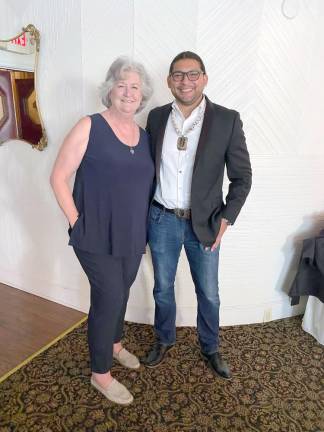
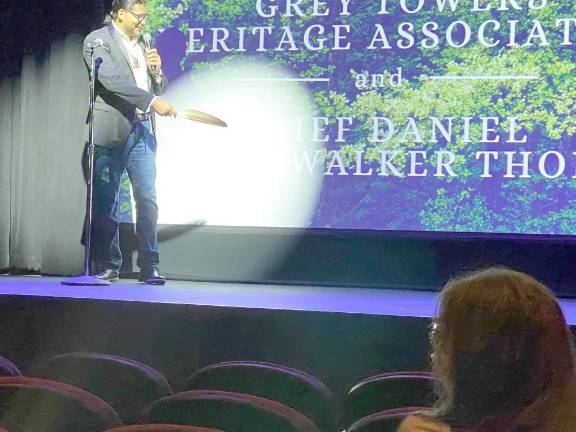
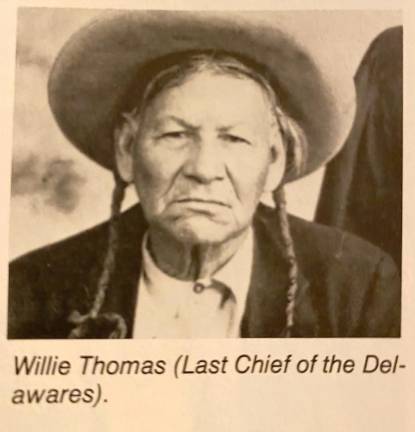
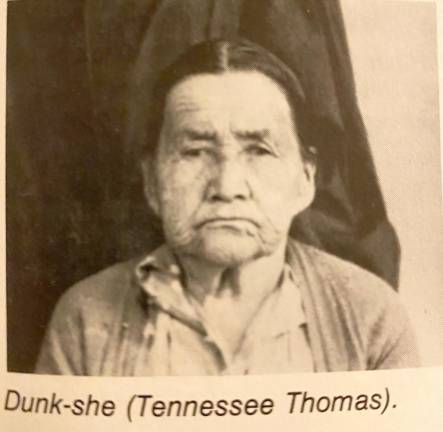
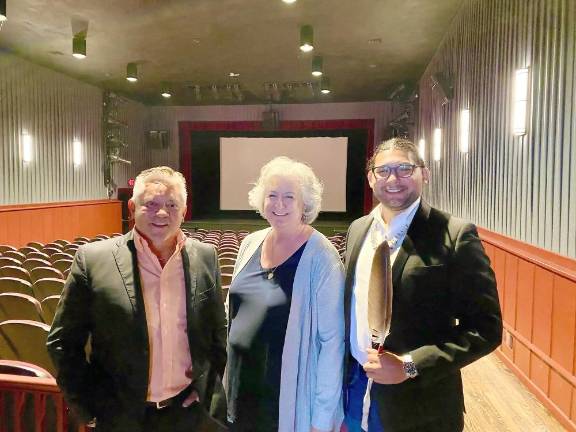
In “The Water Gap; Return to the Homeland,” screened at Milford Theater recently, Delaware Nation tribal citizens visit their ancestral homelands to reconnect with their Lenape identity. The documentary focused on a small group of young people traveling through Pike county to Manhattan, which in Lenape is pronounced “Manahatta,” meaning “hilly island.”
At the screening, Eileen Smith, President of Grey Towers Heritage Association, introduced Daniel Strongwalker as Lenape hereditary chief. Strongwalker, a tall man with a long braid, wearing a shirt and jeans and carrying an Eagle feather, told the audience, “Eagles fly the highest of all birds, getting closest to the Creator. Its significance is that it heals the hopes of the words one speaks, and those words will travel to the Creator.”
Strongwalker described hardships in Lenape history--migrating from state to state, being stripped of their homeland, given no place to bury their dead, and having to prove their identity by verifying the amount of Lenape blood they had.
He said that the government compelled Tom Quick, Sr., in Milford, to take up arms against them. Quick became known as an “Indian killer.” Nevertheless, the reception for Strongwalker was at the Tom Quick Inn. He and the Quick family had a “Bury the Hatchet“ ceremony a few years ago and put aside old hostilities.
Strongwalker then introduced Milford Poet Chuck O’Neil, who was named Poet Laureate of Milford in March. His poems often mark the life of everyday things, tinged with the otherworldly. O’Neil, father of Beth O’Neil, artistic director of the Milford Theater, has published three books of poetry and wrote the poem, “Whereabouts,” for this event. He dedicated it to Strongwalker. O’Neil said he “wrote it as a ‘hymn of recognition, with hope for the future — what Saturday’s event was all about.’”
Strongwalker said that the Pinchot family is working with five federally recognized Lenape communities to return some land through the United Lenape Land Trust. This land would house a cultural center, a place for ceremonies for youth and elders, and the possibility of a cemetery, so they don’t have to bury their dead on Federal lands and in parks. Strongwalker promised that there would be no casinos on this land, adding, “We don’t live by vice monies.”
He said that Milford is fast becoming the blueprint for moving forward together, and he closed with “Wanishi, ” the Lenape word for “Thank You.”
Strongwalker described hardships in Lenape history--migrating from state to state, being stripped of their homeland, given no place to bury their dead, and having to prove their identity by verifying the amount of Lenape blood they had.